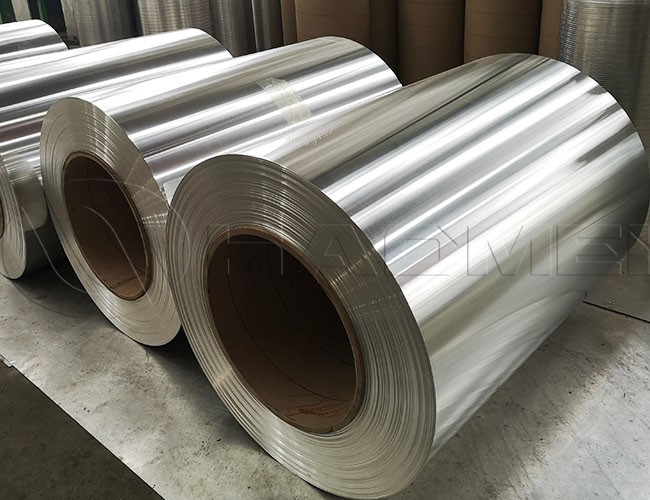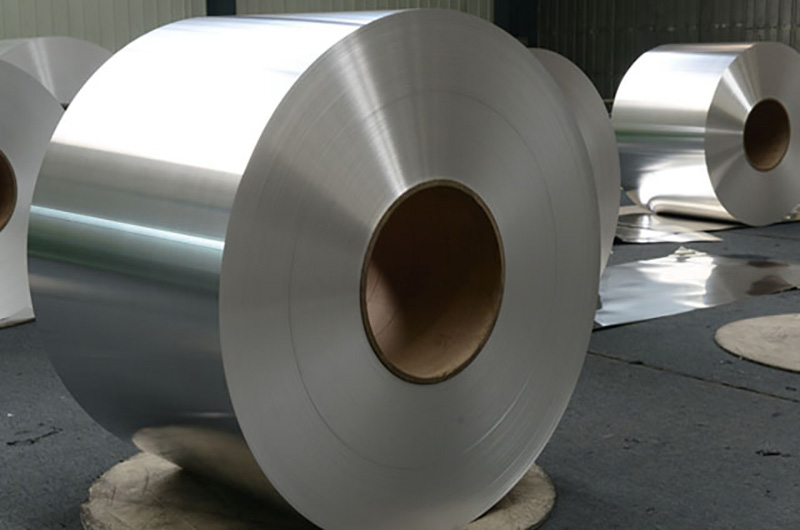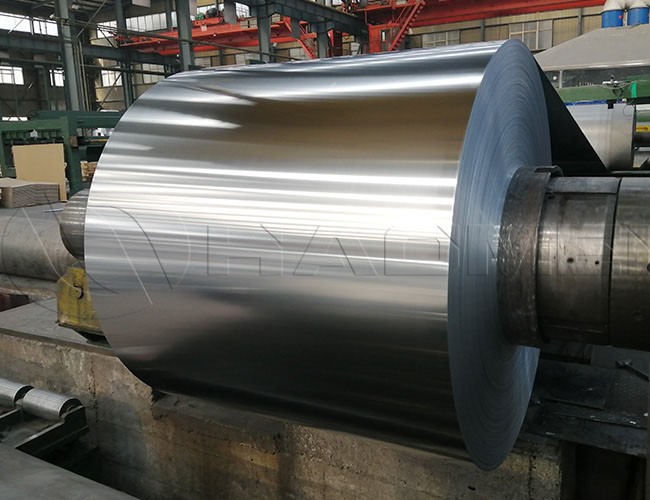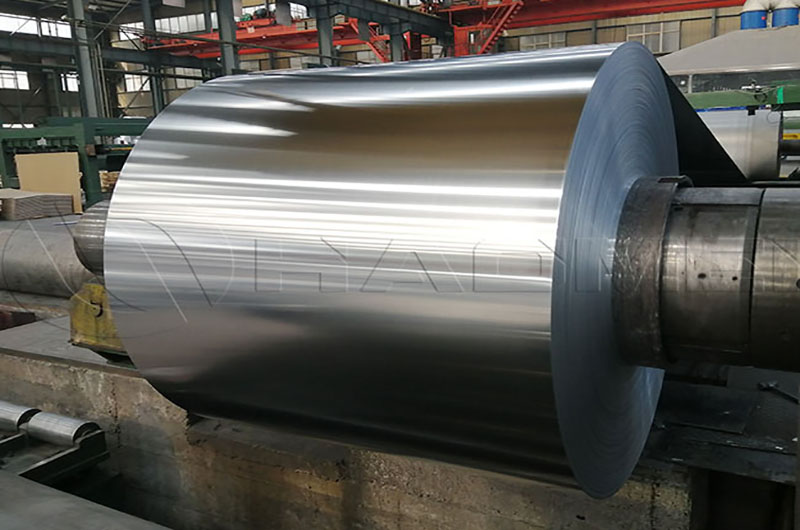Aluminum is a common metal that has good thermal conductivity properties, but also has certain insulating properties under certain circumstances.
Thermal conductivity of aluminum
Aluminum is an excellent thermal conductive material with a relatively high thermal conductivity. This makes aluminum an ideal thermally conductive material in many industrial and electronic applications. For example, aluminum heat sinks and heat sinks are commonly used in electronic equipment and can efficiently conduct the heat generated to ensure the normal operation of the equipment. Aluminum's thermal conductivity properties also make it a common choice for cooking utensils such as aluminum pots and pans.
Thermal insulation properties of aluminum
Aluminum has some insulating properties. Aluminum has a low specific heat capacity, which means that relatively little heat is stored in the aluminum. Therefore, in some cases, aluminum can be used as a lightweight and relatively good thermal insulator, especially in applications where weight is a consideration.
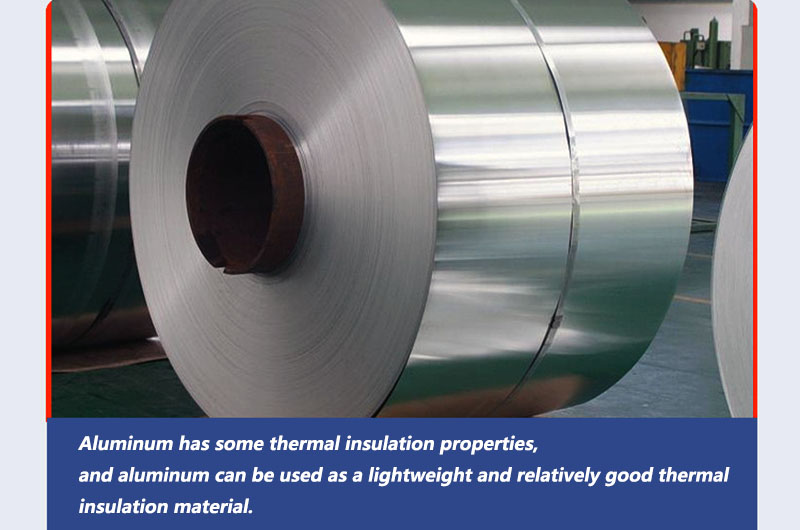
Application areas
Thermal conduction applications
Aluminum is widely used in scenarios that require good thermal conductivity, such as electronic equipment, automotive cooling systems, etc.
- Electronic Equipment: Aluminum is widely used in electronic equipment, such as cooling systems for laptops, smartphones, etc. One common application is in the fabrication of aluminum alloy heat sinks, which are used to absorb and dissipate heat generated by equipment. A typical aluminum alloy might be a 6000 series such as 6061-T6, which has higher strength and thermal conductivity.
- Car cooling system: Car engines and braking systems generate a lot of heat and require efficient cooling systems to maintain normal operation. Aluminum alloys are commonly used to make radiators and other heat dissipation components. A common choice is 3000 series aluminum, such as 3003-H14, which has good thermal conductivity and formability.
Thermal insulation applications
In some situations where weight requirements are more sensitive, aluminum can be used as a relatively lightweight insulation layer, but in high-temperature environments, its thermal conductivity may affect its insulation effect.
- Aerospace: In aircraft structures, aluminum alloys may be used as thermal insulation layers for some parts that need to be lightweight and have certain thermal insulation properties. For example, the surface of the spacecraft may have an aluminum honeycomb structure, which reduces overall weight through its lightweight and thermal insulation properties.
- Construction: In the construction industry, aluminum can also be used as part of the thermal insulation layer in projects that require lightweight exterior wall or roof structures. This usually involves the use of aluminum alloy sheets, such as 5000 series aluminum such as 5052-H32, for thermal insulation and lightweighting.
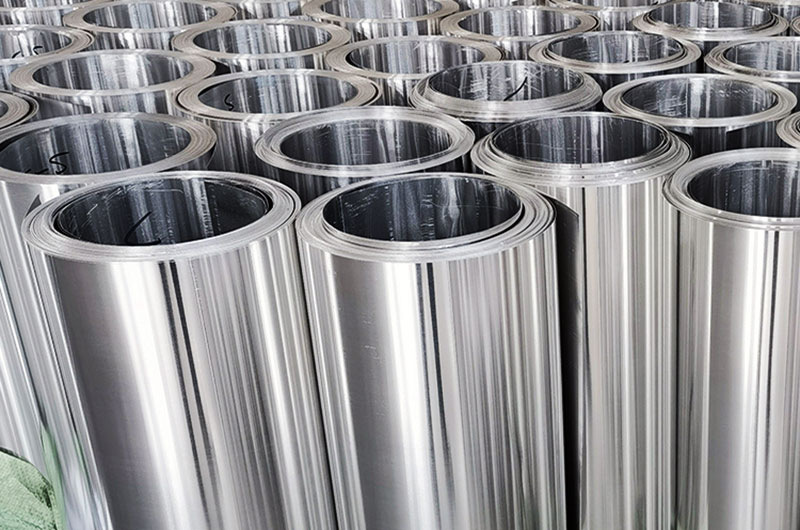
When selecting a specific aluminum alloy, the temperature (heat treatment state of the material) and specifications (size, thickness, etc.) will vary depending on the requirements of the specific application. For example, aluminum alloys in the T6 temper generally have higher strength, but may sacrifice some formability in some cases. Specifications are determined according to the needs of specific projects to meet the performance requirements of thermal conductivity or insulation.
Although aluminum has certain thermal insulation properties, in scenarios where higher thermal insulation properties are required, other materials, such as insulating materials or thermal insulation materials, are often chosen. These materials are more effective at slowing or stopping the conduction of heat, providing better insulation.
If good thermal insulation properties are required, other materials are often chosen, such as insulating materials, insulating materials, or metal alloys with lower thermal conductivity. Material selection depends on the specific application and required thermal properties.
Informations you may be interested in:
- 0.5mm thick 3003 anti-corrosion thermal insulation aluminum coil
- Aluminum Coil for Power Plant Insulation
- Stucco embossed aluminum coil for pipe insulation
- What precautions should be taken when applying thermal insulation aluminum coils?
- Characteristics and storage precautions of aluminum coils for thermal insulation
- What are the benefits of aluminum insulation?
- 1050 thermal insulation aluminum coil

